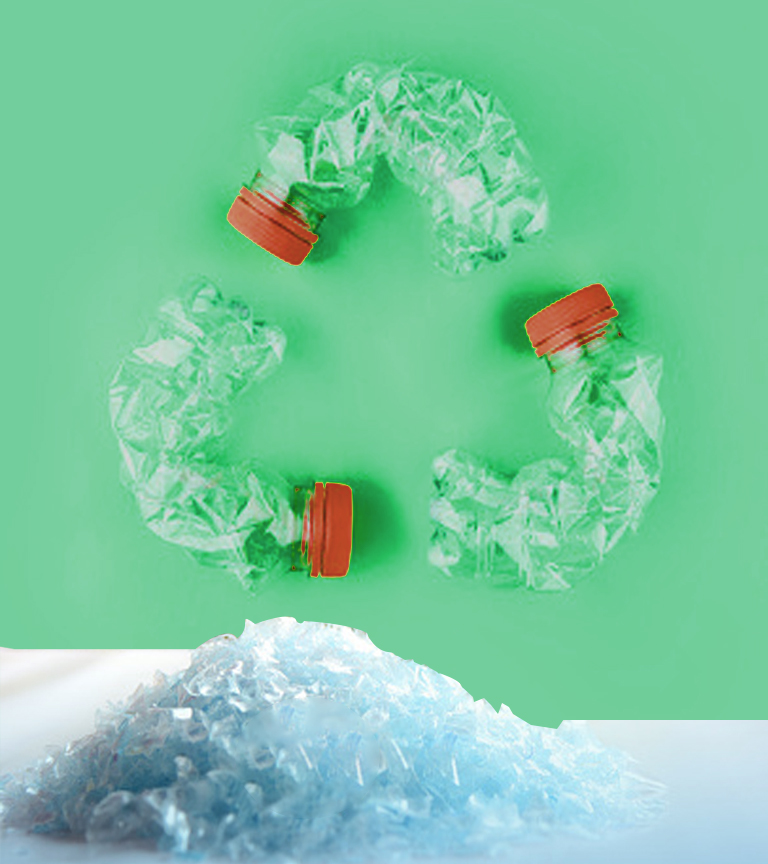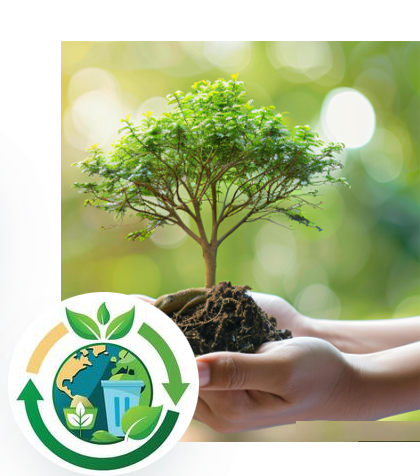The Complete Process of Plastic Recycling: From Waste to Reusable Resources
Plastic recycling transforms discarded waste into reusable materials through a step-by-step process collection, segregation, cleaning, shredding, and melting. This eco-friendly method reduces pollution, conserves resources, and supports a cleaner, more sustainable environment for future generations.
Collection of Plastic Waste – The primary step of the plastic recycling process begins with the recovering of plastic waste from varied sources. Formal plastic recycling involves the organized collection methods to recover plastic waste from households, businesses, institutions, commercial establishments, manufacturing facilities, and industries. Such collection processes includes curbside pickups, drop-off points, recycling bins, and designated recycling centers.
Segregation of Plastic Waste – After the successful collection of plastic waste, they are segregated depending on the several factors defined by the recycling center. It can be on the basis of their properties, polymer or resin they are made of, their colour, their size, and multiple other factors. Segregation helps in carrying out the plastic recycling process successfully by optimizing the process for fast and reliable recycling of plastic waste that have similar properties. Some facilities use automated systems for the segregation, but there are many that rely on manual segregation depending on the kind of plastic waste collected. Some of the plastic waste includes PET (Polyethylene Terephthalate), HDPE (High-Density Polyethylene), PVC (Polyvinyl Chloride), LDPE (Low-Density Polyethylene), PP (Polypropylene), a few others.
Cleaning Plastic Waste – Before processing the plastic waste, it is essential to remove all the contaminants from it including dirt, labels, adhesives, and residues. They are cleaned using different processes including, filtration, centrifugation, rinsing and washing. Removal of these contaminants helps in eliminating the other components other than the plastic waste. Cleanliness is paramount, as it ensures the purity of the recycled material and helps prevent contamination in subsequent stages.
Shredding and Melting of Plastic Waste – To initiate with the processing of plastic waste, firstly they are shredded into small pieces using the best shredding techniques and machinery. Shredded plastic flakes are then melted using the controlled heat to transform them from solid plastic waste to molten plastic. Both these steps are crucial in the plastic recycling as they help in bringing the plastic waste in a form which can be moulded easily into the desired form. Be it the formation of plastic packaging, plastic containers, plastic toys, or any other plastic product; safety and durability are must. It is one of the reasons why formal plastic recycling is what is preferred by most companies, firms, and producers, these days. Plastic Recycling is making the cleaner and greener environment dream come true. By embracing recycling practices, individuals, businesses, and governments can contribute to a more sustainable and resilient future for generations to come.
Benefits of Plastic Recycling : Plastic Recycling for Our Planet and Future
Recycling has become a crucial factor in saving our environment. Recycling has many advantages as it preserves our environment. Recycling is a great process where instead of being discarded, new products are being converted. So, it has many benefits too. Recycling saves human generations from any kind of pollution whether it is land, air or sea. It saves our resources from depleting. It also saves us from many effects of global warming in every sense of the word. So, people and organizations are doing their bit and coming forward for our beloved environment.
People are much more aware, unlike old days. They are very educated and are taking serious steps to save our ecosystem. Everyone is helping in this regard and we as Plastic Recycling Consultants in India are taking this all in seriousness. Plastic Recycling Waste Management is one of our achievable goals and we are continuously working for it. We are concerned for the environment and continuously we are going the extra mile for it.
Plastic recycling offers a multitude of benefits that extend beyond environmental conservation. Let’s explore some of them below.
Plastic Waste Reduction – Plastic recycling diverts plastic waste from landfills and oceans and contributes towards the plastic waste reduction in the society. It helps reducing the burden on waste management systems by giving plastic a second life. Plastic recycling process helps in mitigating the environmental impact of plastic and reduces the increase of plastic pollution in ecosystems.
Energy and Resource Conservation – Plastic recycling aids in the conservation of energy and natural resources by reducing the need for virgin plastic production. Unlike the production of virgin plastic, recycling processes doesn’t require more energy, machinery, or raw materials. The plastic waste can be utilized in the form of a reliable and durable product if processed usig formal plastic recycling process. It also reduces the need of fossil fuels which are high in the production of new plastic. Recycling also helps in decreasing the greenhouse gas emissions which contributes to better environment and climate.
Boosting Economic Opportunities – recycling fosters economic growth by creating job opportunities in different sectors. Every recycling facility, big or small requires skilled labours for plastic waste collection, segregation, cleaning, processing, and manufacturing recycled plastic products. It supports the development of market for recycled plastic materials and helps in driving innovation and investment in recycling technologies and infrastructure. It is also promoting the circular economy by recycling the used plastic for regenerating new plastic products which facilitates the circular flow of materials. It helps minimizing the waste generation and reliance on finite resources.
Brand Reputation and Corporate Social Responsibility – The implementation of plastic EPR program is making companies take the best initiatives towards the plastic waste management and plastic recycling is one of them. It demonstrates a commitment to corporate social responsibility. By embracing sustainable practices like plastic recycling, businesses and producers can attract environmentally conscious consumers, investors, and stakeholders, thereby enhancing brand loyalty in the marketplace.
Plastic recycling program offers a myriad of benefits; however the major benefits can only be attained when they are implemented through formal ways. Formal plastic recycling operations comply with regulatory requirements and environmental standards established by government authorities. By operating within a regulated framework, formal plastic recycling establishments ensure environmental protection, worker safety, and public health. It helps in reducing the risks associated with informal recycling practices which include pollution, health hazards, and poor climatic conditions.










